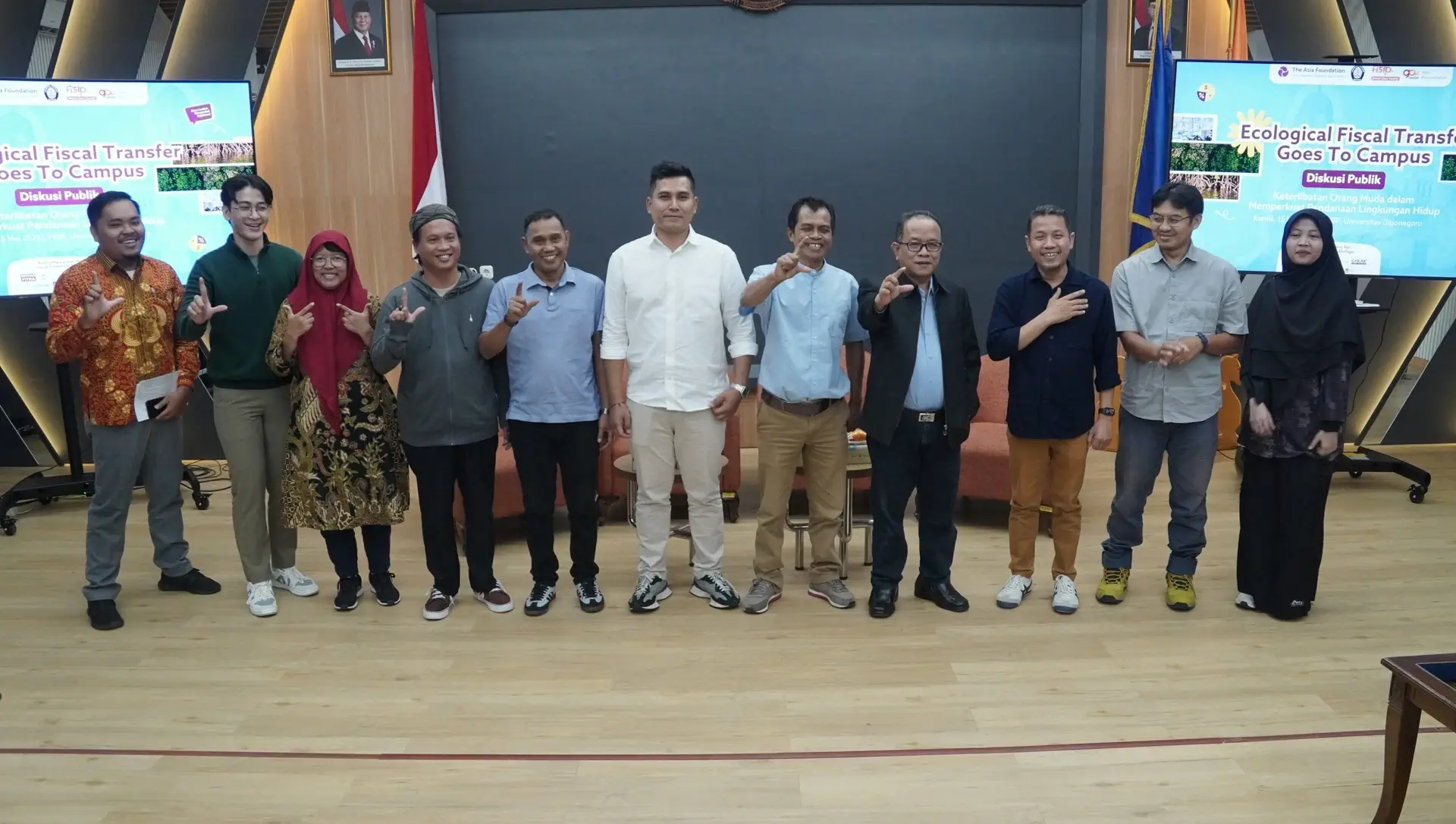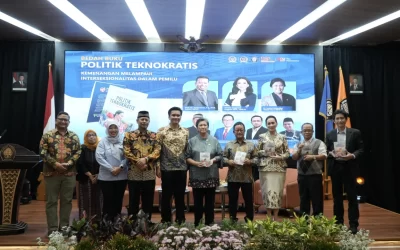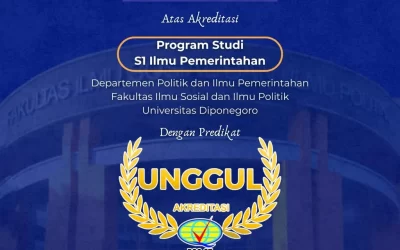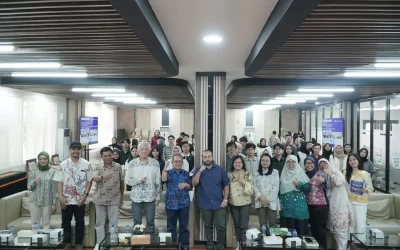May 15, 2025 | Semarang – The Department of Political Science and Government, Faculty of Social and Political Sciences (FISIP), Universitas Diponegoro, in collaboration with The Asia Foundation, held a public discussion titled “Ecological Fiscal Transfer Goes to Campus” on Thursday, May 15, 2025. This event highlighted the strategic issue of Ecological Fiscal Transfer (EFT) as an innovative, performance-based mechanism for environmental funding by local governments, aiming to promote more sustainable environmental governance and encourage the active involvement of youth.
The event opened with welcoming remarks from Ika Riswanti Putranti, Ph.D., Vice Dean of Resources at FISIP UNDIP, who emphasized the urgency of implementing EFT in the context of environmental governance, which still faces many challenges, including corruption and insufficient budget allocation for maritime conservation and other critical ecosystems. She underlined the need for synergy between national and local governments so that fiscal transfers can be used effectively to preserve the environment.
Dr. Nur Hidayat Sardini, Head of the Department of Political Sciences and Government at UNDIP, highlighted the importance of cross-sector collaboration in facing the increasingly evident impacts of climate change in Indonesia. He stressed that education and raising environmental awareness among the younger generation are key to fostering disaster preparedness and strengthening sustainable environmental movements.
The discussion session, moderated by Yoga Putra Prameswari, a lecturer in Political Science at UNDIP, featured three main speakers: R. Alam Surya Putra, Director of the Environmental Governance Unit at The Asia Foundation Indonesia; Dr. Laila Kholid Alfirdaus, Head of the Doctoral Program in Social Sciences at FISIP UNDIP; and Putri Milasari, a youth climate activist from PATTIRO Semarang.
In his keynote presentation, Alam Surya Putra explained that the root of environmental degradation in Indonesia lies in weak governance and rent-seeking practices in the natural resource sector. The Asia Foundation advocates for EFT as a performance-based mechanism that distributes fiscal transfers transparently and accountably, using locally adapted environmental indicators. The EFT model has already been successfully implemented in several provinces, such as North Kalimantan and Papua, with positive results in environmental management and in empowering eco-tourism and green economy-based communities.
Dr. Laila Kholid highlighted the challenges of building environmental awareness among youth, which remains low due to the complexity of the issues and a lack of interdisciplinary knowledge integration. She encouraged efforts to bring ecological issues down to earth by relating environmental topics to aspects that are closer to young people’s daily lives, such as food, recreation, and lifestyle, so that they can more easily understand the relevance of these issues.
Putri Milasari shared her activism experiences in Central Java, particularly efforts to raise awareness among coastal communities about tidal flooding (rob) and waste management through a circular economy approach. She emphasized the importance of inclusive advocacy spaces—both on campuses and in communities, so that young people can actively participate in protecting the environment..
The discussion also addressed the challenges of implementing EFT, including the absence of a national legal framework and reluctance from local governments to adopt the scheme. Nevertheless, civil society advocacy efforts continue to push for EFT to become a tool that promotes fiscal justice and environmental sustainability.
In closing, the event underscored the strategic role of university students and young people as agents of change in enhancing environmental funding and governance through innovative mechanisms like EFT. Active youth participation in this issue is highly anticipated to help realize sustainable development.





0 Comments